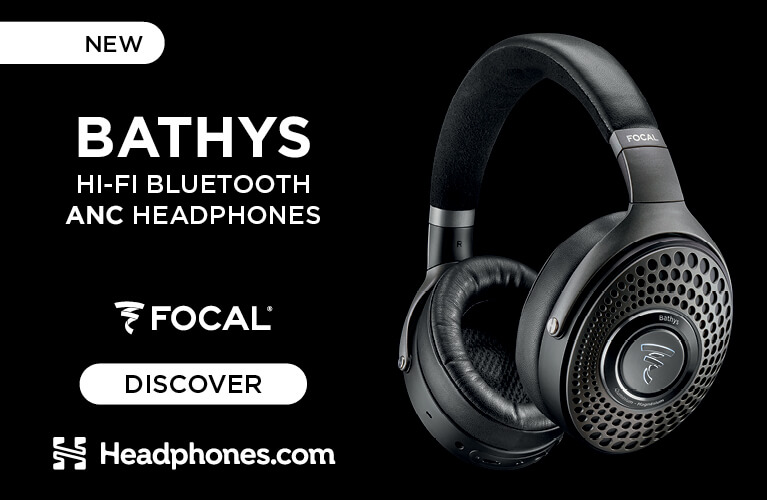Sound: 









Value: 









Measurements can be found by clicking this link.
 Even though Audio-Technica’s big open-back audiophile headphones have always been a little idiosyncratic, they’ve also ranked among my favorites. When I got hooked on the 2000s version of Battlestar Galactica -- all streamed through Netflix on a laptop before Netflix was available in Blu-ray players and TV sets -- I used Audio-Technica’s ATH-AD900 headphones because I liked the sound and I knew they’d stay comfortable through all 75 episodes. The new ATH-ADX5000 headphones ($1999 USD) could be considered a super-high-end version of the ATH-AD900s; in fact, they’re more than three times as costly as the company’s next-priciest open-back, the ATH-AD1000X headphones ($599.95).
Even though Audio-Technica’s big open-back audiophile headphones have always been a little idiosyncratic, they’ve also ranked among my favorites. When I got hooked on the 2000s version of Battlestar Galactica -- all streamed through Netflix on a laptop before Netflix was available in Blu-ray players and TV sets -- I used Audio-Technica’s ATH-AD900 headphones because I liked the sound and I knew they’d stay comfortable through all 75 episodes. The new ATH-ADX5000 headphones ($1999 USD) could be considered a super-high-end version of the ATH-AD900s; in fact, they’re more than three times as costly as the company’s next-priciest open-back, the ATH-AD1000X headphones ($599.95).
The core of all of Audio-Technica’s open-back headphones is a single large dynamic driver in each earcup -- essentially a smaller, flatter version of a conventional speaker driver. The ATH-ADX5000s’ driver measures 58mm, and the diaphragm is coated with tungsten to stiffen it. (The ATH-AD1000Xes’ driver measures 53mm and appears to use an uncoated Mylar diaphragm.) Instead of having a driver attached to the baffle, the baffle is an integral extension of the driver itself.
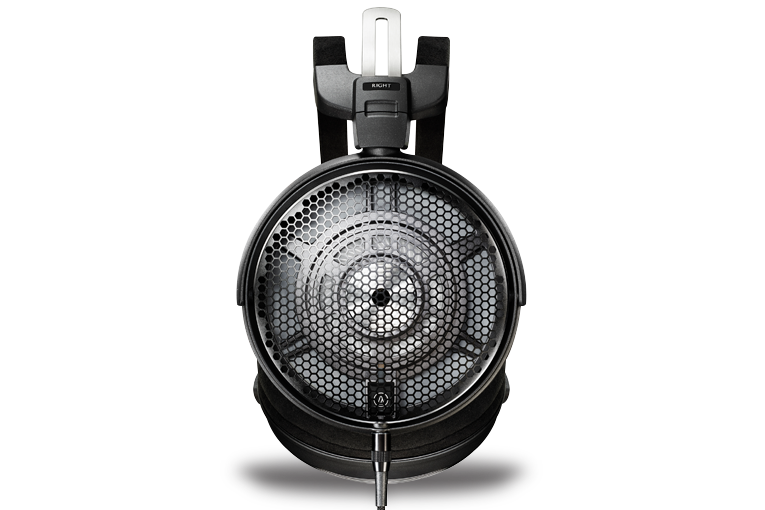
The driver has a rated impedance of 420 ohms, comparable to that of many other dynamic-driver audiophile models, but much higher than the ATH-AD1000Xes’ 40 ohms. This, combined with the ATH-ADX5000s’ slightly lower rated sensitivity of 100dB versus 102dB for the ATH-AD1000Xes, means the ATH-ADX5000s should require a drive voltage about 4.1 times higher to reach the same volume level -- a task that may be beyond the capabilities of some portable devices.
The frame is made from lightweight magnesium. The back is unusually open, with a thin (but stiff) honeycomb-perf metal sheet covering the back of the driver; the idea is to protect the driver while creating minimum resistance to airflow.
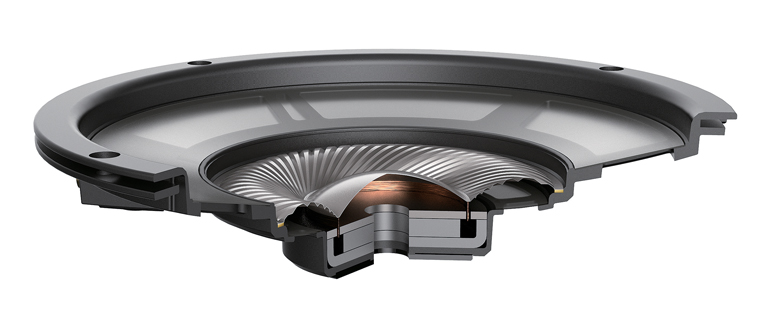
Functionally, the ATH-ADX5000s differ radically from the ATH-AD1000Xes in only one way: they’re the only open-back Audio-Technica headphones that don’t use the company’s 3D Wing Support system. With that system, the headband is rigid, and spring-loaded “wings” support the headphone on your head. The advantage is that the clamping force is very light; the disadvantage is that you have a couple of little wings pressing against your head. No problem for me, but a bald friend of mine likened it to having a creature crawling on his head. Instead of the wings, the ATH-ADX5000s use a conventional springy band that clamps the headphones to the listener’s head.
In the box
Many high-end headphones come in a handsome but useless presentation box, while the ATH-ADX5000s substitute something I think is far more useful: a retro-ish mini-suitcase that looks like the ones used 50 years ago for 8mm film projectors. At about 14" by 11" by 6.5", the well-padded case is probably more than most people would want to take on an airliner, but it’s compact enough to slip into a small car trunk.
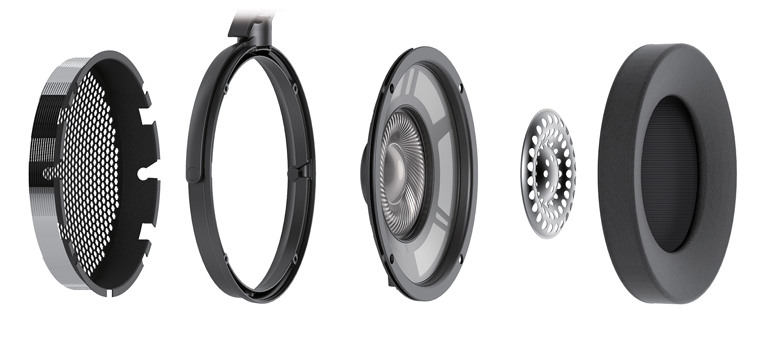
The ATH-ADX5000s include only one cable: a 3m (9.8') cable tipped with A2DC connectors on the headphones and a 1/4" plug on the other. A balanced cable -- with separate grounds for the left and right channels, plus a four-pin XLR connector instead of the 1/4" plug -- costs $349.
Use
In ways, the ATH-ADX5000s feel like the other Audio-Technica open-back headphones I’ve worn: light, and big enough to accommodate my earlobes completely, with no rubbing. Yet the clamping force seems a little tighter than I remember from the other models, and it’s not as evenly distributed. If I adjusted the band so it sat on my head, there was too much pressure on the top of the earpads, above my ears. If I adjusted the band to be a little longer, so I got more even pressure around my ears, the headphones felt like they were slowly slipping down. I got used to the feel of the ATH-ADX5000s after a few hours of listening and experimenting with different band adjustments, but I have to say I preferred the wings.
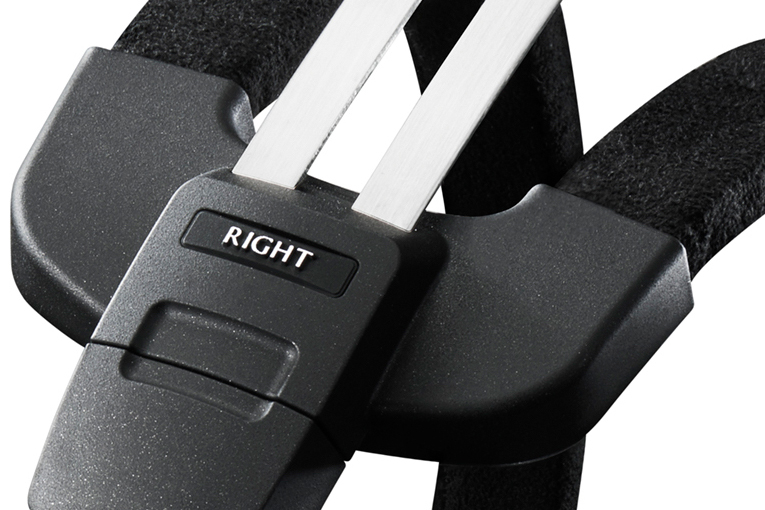
Although I did most of my listening to the ATH-ADX5000s with my Audio-gd NFB-1AMP headphone amplifier, I found that my iPod Touch (which I used to break the headphones in) and my Samsung Galaxy S9 smartphone could drive them to adequate levels. They didn’t sound especially great this way -- the mid-treble seemed a bit boosted, the bass not quite as strong -- but still, I was able to do some casual listening with them using the iPod Touch. Good to know just in case you someday need to plug the ATH-ADX5000s into a substandard source device.
Sound
After a few days of casual listening, I set up to make some notes . . . and I happened to have Spotify open on my computer, with the Rap Caviar playlist front and center. Not the type of music most people would play on $2000 open-back headphones, because bass-heavy music is often the weak spot of audiophile headphones, but I figured I’d give a listen to “Yes Indeed” (single, 320kbps Ogg Vorbis, Quality Control Music/Spotify), by Lil Baby and Drake, anyway. Some audiophile headphones make this kind of music sound screechy, because they attenuate the bass that’s intended to counterbalance often-edgy vocals and electronic percussion sounds. Not the ATH-ADX5000s, though: they delivered enough bass to sound not only acceptable but ideal for this kind of music. In fact, the ATH-ADX5000s’ detail and clarity actually made “Yes Indeed” far more interesting to listen to. The voices sounded extremely clear, with just a sliver of sibilance (which could well have been caused by Ogg Vorbis’s data compression rather than by the headphones). Images of the two vocalists were precisely centered, yet I could hear the Roland TR-808-style high-hat actually moving around slightly in the mix. The tune’s deep bass hits -- exactly the part I thought the ATH-ADX5000s might flub -- sounded colossal yet tight and precise.
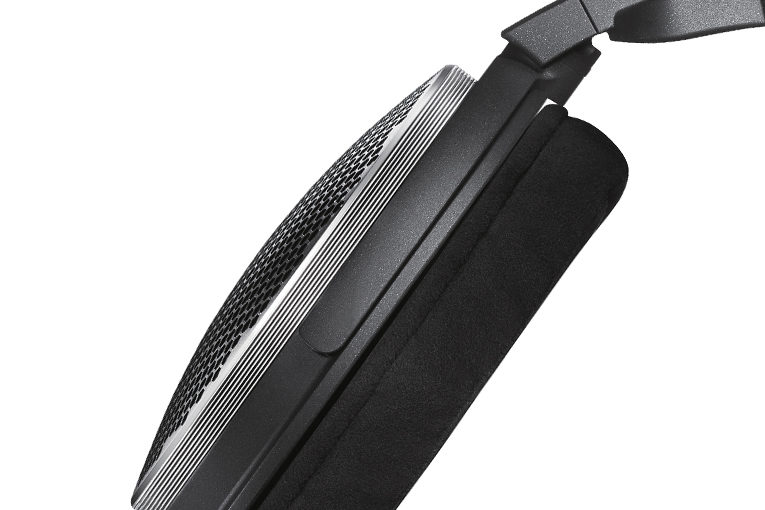
“Satisfy My Soul,” from Bob Marley and the Wailers’ Kaya album (16-bit/44.1kHz FLAC, Island Def Jam), provided a tougher test, with more vocalists and instruments. I loved the way the ATH-ADX5000s delineated all the different elements of this recording in virtual space, with each horn’s position audible, and the percussion instruments (especially the high-hat at hard left and the jawbone at hard right) imaged with exceptional precision. Most important, Marley’s vocals and the backing vocals sounded clear and natural. I would say that the tonal balance was just a hair on the bright side, but I liked it that way because it made the sound seem subtly more detailed and vivid with no sonic downsides.
An even more complex production, Marvin Gaye’s “Mercy Mercy Me (The Ecology),” from his What’s Going On album (16/44.1 FLAC, Motown), sounded no less impressive through the ATH-ADX5000s. I could hear the numerous instruments -- piano, tenor sax, strings, guitar, even glockenspiel -- clearly in the mix, and the bass guitar sounded fuller and more grooving than I remember it sounding with Audio-Technica’s less-expensive open-backs. Even though the snare drum is not prominent in this mix, I could easily hear that it, alone among the percussion instruments, had some extra reverb added. Before hearing this tune through the ATH-ADX5000s, I never realized how much care went into its production.
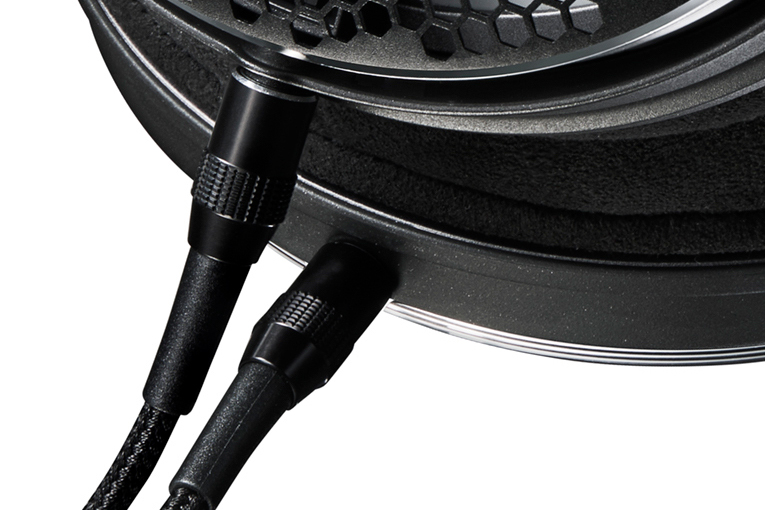
A far simpler, but perhaps more acoustically complex, production is David Chesky’s album Jazz in the New Harmonic (16/44.1 WAV, Chesky Records), recorded live in a large church with a single multi-element microphone. On the first track, “Check Point Charlie,” I was impressed with the detail and depth the ATH-ADX5000s gave me, and the sense of the instruments wrapping around me. Even though I was wearing headphones, and even though this wasn’t one of Chesky’s headphone-oriented Binaural+ recordings, I could still get a fairly accurate sense of how close the instruments were to the microphone: bass clarinet and muted trumpet perhaps 8' or 10' in front of the microphone; double bass right up next to it, maybe a little to the right; piano so far off that it almost sounded like it was coming from another room; and drums somewhere in between.
Comparison
I had a chance to compare the ATH-ADX5000s with two other high-end, open-back headphones, Audeze’s LCD-Xes (originally $1699, now $1199) and HiFiMan’s HE1000 V2s ($2999).
Listening to jazz drummer Paul Kreibich’s live recording Thank You Elvin (16/44.1 WAV, Bandcamp), I noted that the ATH-ADX5000s and the HiFiMan HE1000 V2s sounded fairly similar, even though the ATH-ADX5000s use dynamic drivers and the HE1000 V2s use planar-magnetic drivers. I would say the ATH-ADX5000s did a better job of capturing the recording venue acoustics in “Space Mistress,” largely because they sounded subtly brighter, which helped me hear the echoing of the cymbals and saxophones. But the cymbals and the saxes did sound a hair on the trebly side. Through the HE1000 V2s, the cymbals and sax sounded a bit softer and smoother -- and, I think, more realistic, although not quite as exciting. The Audeze LCD-Xes sounded less like either of the Audio-Technica or the HiFiMan models: softer than both, but more robust and driving, with a little more punch in the bass.
Another Chesky recording, the Sade tune “No Ordinary Love” from singer Meiko’s Playing Favorites album (24/192 AIFF, Chesky Records), provided a similar perspective. Again, the ATH-ADX5000s did the best job of capturing the sense of the recording space, and of conveying the detail in the mids and treble. Again, the HE1000 V2s sounded smoother in the treble than the ATH-ADX5000s -- but paradoxically, they also sounded a little more sibilant, and the percussion on the tune didn’t seem to have as much body. Again, the LCD-Xes were the most different, with more bass (I actually didn’t realize there was bass in the tune until I heard it through the LCD-Xes) and a more kick-ass sound overall.
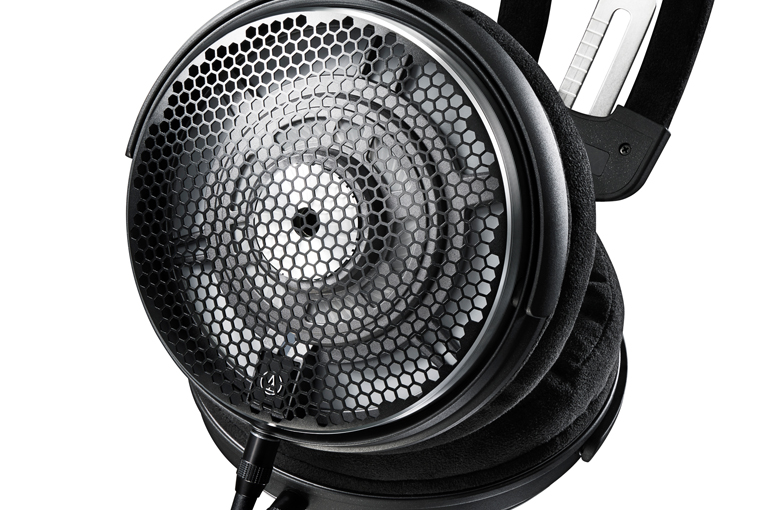
Ultimately, these are all very good headphones that I thoroughly enjoy listening to. Each one has its particular strengths, but there’s no doubt that the ATH-ADX5000s are sonically competitive with both.
It’s also worth noting that the HE1000 V2s were, for me, by far the most comfortable to wear. The issues I had with the ATH-ADX5000s I’ve already discussed; the Audeze LCD-Xes have wonderfully plush and comfy earpads, but the headphones are a little on the heavy side.
Conclusion
I’ll confess I was a little skeptical about the ATH-ADX5000s going into this review. At first glance, they don’t really seem all that different from their stablemates, and while I’ve liked the sound of Audio-Technica’s open-back models, I didn’t think any of them were really world-class. Plus, selling a model that’s more than three times the price of your next-most-expensive open-back seems a stretch.
With the ATH-ADX5000s, I think Audio-Technica put themselves back among the top players in audiophile headphones -- something that hasn’t really been true since the rise of ambitious audiophile-focused competitors such as Audeze and HiFiMan. I would describe the ATH-ADX5000s’ sound as maybe +0.5dB on the bright side, which will give audiophiles that little extra touch of apparent detail so many of them crave without ever, in my experience, making the sound even slightly fatiguing. Whether you like the way these headphones fit and feel is entirely personal, but I can’t imagine any audiophile or headphone enthusiast wouldn’t consider the ATH-ADX5000s sonically competitive with anything on the market up to at least $3000. If you’re looking for high-end open-back headphones, they’re a must-hear.
. . . Brent Butterworth
Associated Equipment
- Headphone amp -- Audio-gd NFB-1AMP
- Sources -- Musical Fidelity V90-DAC digital-to-analog converter, Apple iPod Touch music player, Samsung Galaxy S9 smartphone
- Headphones -- HiFiMan HE1000 V2, Audeze LCD-X
Audio-Technica ATH-ADX5000 Headphones
Price: $1999 USD.
Warranty: Two years repair, refund, or replacement.
Audio-Technica U.S., Inc.
1221 Commerce Drive
Stow, Ohio 44224
Phone: (330) 686-2600
Website: www.audio-technica.com


